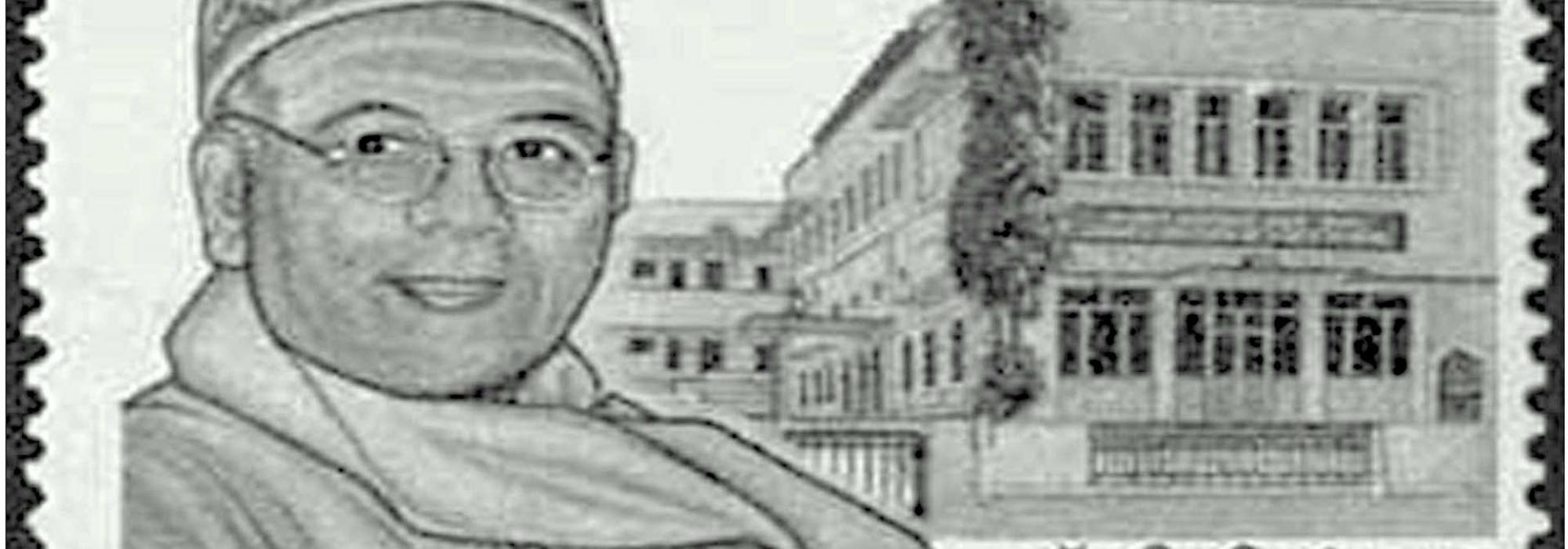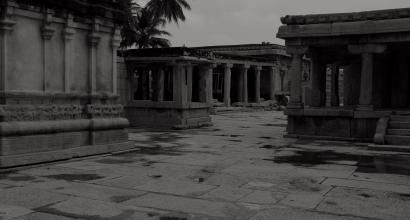Right from my childhood, I was keenly interested in industrial ventures. During the days I was in the high school, procuring a job was naturally a common concern of students. Matriculation was a momentous landing after the first few flights of the staircase of education. There, one would pause to ponder over the future course. “What would you like to become - teacher, lawyer, doctors, engineer or officer?” - were the questions posed by the elders. I too was anxious about the future. This was when I was studying in the fourth Form in Mysore.
Back in those days, the Madras Government was running an institution called the ‘School of Arts’. It was equipped to train youngsters in various branches of vocation and industry. The Government would give them some amount of monthly stipend. The head of this ‘School’ was an Englishman called Alfred Chatterton. He came to Mysore as the head of the Department of Industries during the initial days of the tenure of the renowned Diwan Visvesvaraya. He came to be known as Sir Alfred Chatterton when he came here. When he was the President of the school of Arts an advertisement was released in the papers. It was an advertisement inviting applications for admission. The offer of a stipend was also mentioned. After seeing this, I wrote a letter requesting Mr. Chatterton asking for more details of the course. He kindly sent me a little brochure describing the objectives and regulations of the institution. Reading this, I felt that this was a suitable opportunity for me and I wrote a letter to my father.
The summary of my letter is as follows:
‘I would like to earn my livelihood independently after getting trained in a suitable craft. There is scope for such training in the school of Arts in Madras. I am enclosing a copy of the regulations of this school. I would like to receive occupational training in sheet-metal work. During the training period, the school is going to pay me a stipend of seven Rupees a month. If you will send me seven or eight Rupees in addition, in two years, I would complete my course. Then, I could start a small factory of my own and earn money”
Divine Dispensation
Our plan was indeed excellent. But how could it be of any use if destiny was not in its favour? When my letter reached the hands of my father it was about 2.30 in the afternoon. In Mulabagilu the post arrived only by mid-day. After reading my letter, my father must have become quite anxious. He thought it would be better to consult some friends and then to decide on the issue on his own. Accordingly, on the following day, my father went to our neighbour Ramadasappa to get his good counsel. I have already described the personality of Ramadasappa. He was a Sub-Registrar, was educated, knew Sanskrit, was good in thought and deed, was absolutely honest. Hence, his decision was to be honoured and followed.
You see how destiny played the game. When my father arrived in Ramadasappa’s house, he had sat down before the barber to get a shave. Venkatashami, a good natured barber was holding Ramadasappa’s cheek and moving his blade cautiously across the cheek. At this unearthly time my father referred to my letter. Ramadasappa asked for the letter, took it from me and read it. After reading it, he put it aside. He said, ‘It is all right’.
My father: What does not mean?
Ra: It seems he wants to be self reliant.
My father: Oh! Does that mean he has nobody to help him?
Ra: It seems he wants to learn some occupation;
My father: What occupation?
Ra: Sheet-Metal work
My father: What does it mean?
Ra: (showing the bowl of water near him) Preparing something like this
With that, my project saw its end.
My father wrote to me in reply:
“You don’t need to be independent. Nor do you need to take up the occupation of a barber. Being born in a great family, with a renowned great grandfather, and a renowned grandfather you should not think of being known as a grandson engaged in making a barber’s bowl. If you don’t give up this idea, you may take it the relationship between you and me as having snapped for good”.
But the botheration of looking for a proper job did not end there. For some days I struggled with the idea of becoming an agent for a Life Insurance company. I got the brochures of a number of companies and their lists of vacancies. But friends discouraged me. Then for a few days I played with the idea of joining the Postal Department. This suggestion was from our Subba Bhat. His idea was that the job would involve limited hours of work and a lot of free time. This would be conducive to my pursuit of knowledge. But its responsibility was extremely heavy. For some days I got excited with the prospect of becoming a purohita. Then for some time I aspired to take up the position of a Village Patel.
Independent Creations
Now I’ll narrate the story of our last attempt to run a production enterprise. Four of us, namely, Anur Venkatchar K. Venkata Rao, Dandi Narasinga Rao and I – were to run a dye–factory. For this purpose, we rented a house that belonged to Setlur on the left side of the central Mohamadan Association on the Arcot Srinivasacharlu Road. We were to arrange grinding stones in a row and pound substances acting as colours or dyes and to mix them: Charcoal, flax-seed, and oil for mixing .
In this manner, by performing experiments on manufacturing our own products, we exhausted the little amount that we had on hand.
Soap Manufacture
When I was working in the journal Sūryodaya Prakāṣikā, around 1966 a certain nationalist hero came to Bangalore. He was perhaps from the Punjab region. I have by now forgotten his name. He was a certain Sardar. He was a secret revolutionary. He would tell us: “Be warned. Foreigners would conspire to trample us down. No trick can drive them away. We have to start a revolution to evict them. For that purpose all our youth should gird up their loins. Everyone should learn to wield a sword and to make a bomb. But it should be done secretly- in absolute secrecy. I’ll teach you how make a bomb. But I have told you in absolute secrecy. Openly what we can do is to make soap”.
He demonstrated how to make soap. The soap that we first prepared under his guidance was red in colour, was somewhat sticky and was in lumps. It was awful in its appearance. Being red, it gave the impression of being meat. To make this concoction of a soap, we had installed machinery including an oven, a frying bowl belonging to Sūryodaya Prakāṣikā press.
Of course all this had to be done in absolute secrey.
Great Slogans
This went on for about fifteen days. We had arranged for food for our guru in revolution at the hotel of Arcot Bhimacharya. This guru covered himself with a coat. He had a profusely grown beard. He had a turban wound around his head in a typically North Indian style, typically casual. The loose end of the turban often touched the left side of his chest (I have already written this in the portrayal of D Venkataramayya) . That I too had once imitated this style, I have mentioned in my write – up on D. Venkataramayya. This guru of ours taught us this refrain:
pagaḍī sambhālo jāṭhā
pagaḍī sambhālo
Jāṭhā refers to a soldier or a fighter. The lines meant “Set right your turban.” This would further mean, “Get ready to go to the battlefield”.
With this epic poetry we included a few other poetic lines. One of them was a stanza from Byron.
Freedom’s battle once begun,
Bequeathed from bleeding sire to son.
Though battled oft, is ever won
Breathing in this revolutionary atmosphere, we spent three or four months. Among my partners of this experience, one was Navaratna Krishnaswamy, younger brother of Navaratna Rama Rao.
A group of young revolutionaries was perhaps active in every big town in those days: in Calcutta, Madras and Pondicherry. In Madras, A.P Thirumalacharya and others were leading. He belonged to a wealthy family of Srivaishnava community of Mandya. His house was on the bank of a lake called ‘Teppakola’ in front of the Parthasarathi Temple. It was a large house. The building was grand. Bipin Chandra Pal, who had given fiery speeches in Madras in 1906-07 was a guest in the house of A.P Thirumalacharya.
A branch of this family lived in Pondicherry. In Pondicherry, under the care of a certain Srinivasacharya, a printing press called India Press functioned, which brought out, among others, two dailies: an English Daily named ‘India’ and a Tamil Daily by name ‘Vijaya’. Renowned Tamil poet Subrahmanya Bharati lived in Pondicherry in those days. He actively participated in the work of these dailies and was also involved in fervently patriotic dialogues. I feel now the days that I spent there were very joyful.
The main part of this joy was our irresponsibility. Chats-chats arising from irresponsibility, considering neither the past nor the future. What came to the mind at the spur of the moment would come in an article. What came as the first thought was the argument. I will wind up this chapter at this point.
This isthe English translation of the twenty-fifth essay in D V Gundappa’s magnum-opus Jnapakachitrashaale (Volume 8) – Sankirna Smrutisamputa











































